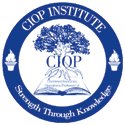Would You Like To Explore Conducting this Program on Your Site?
Contact
Paul James, Dean of Curricula pjames@ciopdesignation.com
866.930.CIOP
Overview
Curriculum
Who Should Attend
The Master of Insurance Business Analysis (MIBA) designation program provides a pathway to obtaining and applying outstanding business analysis skills, methodologies, and techniques – all within the context of insurance. The MIBA designation does this through an intense and compelling curriculum consisting of: Rigorous and complete course content; Supported by extensive insurance business examples and case studies; Reinforced through practice and application. In this manner, the MIBA program provides a uniquely rewarding and highly relevant professional developmental experience – while delivering immediate and tangible benefits to the enterprise. Essential knowledge is gained. Core disciplines and methodologies are learned. Skills are honed. The latest tools and techniques are grasped. Mutually rewarding business relationships are enhanced. Projects and initiatives are significantly improved. Business performance accelerates.
Business Analysis Foundation and Fundamentals
- System Development Frameworks, Models & Processes
- Waterfall and Spiral Models
- Agile Development Models
- Project Accelerators and Practices
- Rational Unified Process
- Extreme Programming and Rapid Development
- Scrum Concepts and Techniques
- User Experience Models and Body of Knowledge
- The Business Analysis Bodies of Knowledge
- Traditional Functional Requirements & Story Boarding
- Business Analysis Planning & Control
- The Business Solution Life Cycle
- Business Analysis and the Insurance Digital Journey
Requirements Analysis, Management & Communication
- Organizing, Documenting and Prioritizing Requirements
- Clarifying Assumptions, Constraints and Dependencies
- Business, Functional and Supplemental Requirements
- Requirements Analysis Techniques, Methods and Tools
- Verifying and Validating Requirements
- Navigating the Requirements Approval Process
- Packaging and Communicating Business Requirements
- Managing Requirements Traceability and Re-use
- Agile Story Boarding Techniques and Practices
- Prototyping Approaches and Requirements Management
- Forging Linkage between Innovation and Requirements
Enterprise Analysis – Connecting Needs and Solutions
- Masterful Business Needs Identification
- Solutions Scoping and Managing Constraints
- Enterprise Architectures and Models
- Enterprise Analysis Techniques & Toolkit
- Root Cause Analysis & Techniques
- Risk Analysis and Mitigation
- Performing Business Gap Analysis
- Vendor & Commercial Off the Shelf (COTS)Due Diligence
- Project Governance & Decision Rights
- Improving Business Performance Through Analytics
Solution Design, Assessment, Validation & Implementation
- Contributing to Design – Building Design Constructs
- Design Techniques and the Business Analysis Tool Box
- Simplifying the Design Solution
- Rapid and Joint Application Design & Development
- SCRUM Design & Build Sprints
- Requirements and Functional Decomposition
- Writing and Testing Business Rules
- Design Prototyping and Requirements Matching
- Defining Acceptance & Evaluation Criteria
- Crafting and Applying Flawless Testing
- Validating the Solution and Resulting Performance
- Defining and Managing Transitions
- Documenting and Packaging the Solution
- Point-of-Implementation Readiness Engineering
- Implementation Planning & Execution
Elicitation of Business Requirements
- Overview of Elicitation Best Practices
- Elicitation Planning and Pre-project Success
- The Project Complexity Model
- Statement of Work Design and Documentation
- Elicitation Tasks, Elements and Techniques
- Stakeholder and User Identification and Analysis
- Fulfilling Elicitation and Requirements
- Project Life Cycle Determinations
- Elicitation Workshops and Discovery Process
- Elicitation Interviewing, Surveying and Documentation
- Identifying and Analyzing Dependencies and Interfaces
Interpersonal Skill Building
- Influencing Without Authority
- Flawless Facilitation
- Building Mutually Beneficial and Lasting Relationships
- Managing Your Brand and Self Development
- Communicating for Results
- Understanding and Managing Behaviors
- Emotional Intelligence for Project Team Members
The MIBA designation and conference is designed to better enable all those who contribute to improving business performance and the project capabilities of insurance firms. The business analysis process and skill set embraces an ever widening and diverse group of industry professionals including:
- Project Managers and Business Analysts
- Technology Executives and Professionals
- Process Designers and Owners
- Product Managers
- Systems Designers and System Analysts
- Internal Consultants & Business Advocates
- Operational Managers and Professionals
- Financial Managers and Professionals
- User Community Members
- Application Developers and Designers
- Business and IT Architects
- Business Integrators and QA Staff
- Digital, Web & UX Designers
- Customer Experience Managers
- Business Unit Heads
- Subject Matter Experts
- Actuarial Managers and Professionals
- Strategic Planners and Practitioners

